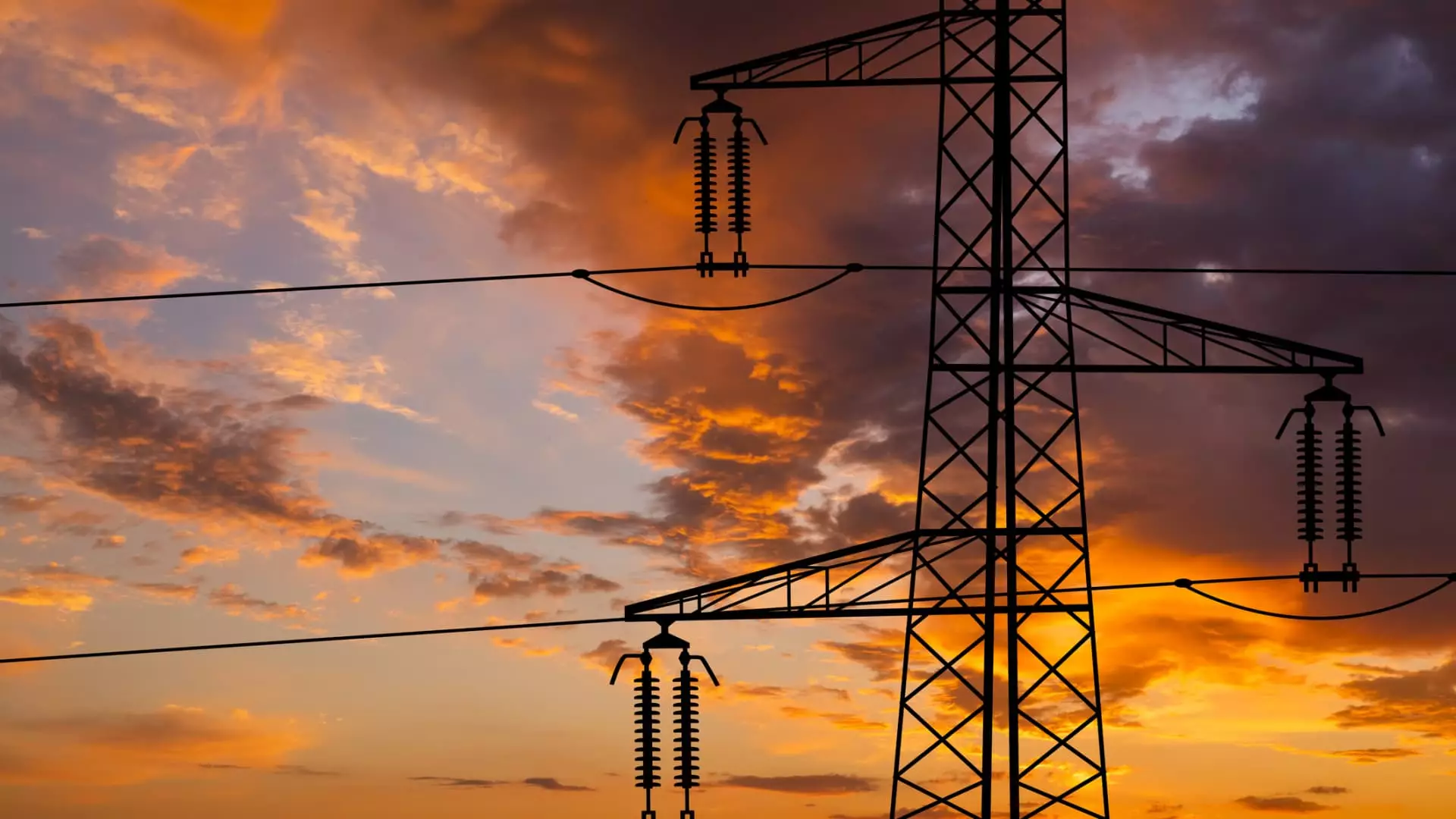In the early hours of Sunday, a dire wave of missile strikes reverberated across Ukraine, marking a stark escalation in the ongoing conflict with Russia. This latest offensive, hailed as the most significant since August, has been characterized by a concerted attack on the nation’s already fragile power infrastructure as winter approaches. The Ukrainian populace had anticipated such a move, preparing for the worst regarding potential damage to their electrical grid—a critical lifeline that could lead to extended blackouts and a heightened psychological strain amidst the turmoil of war.
The urgency of the situation was encapsulated by Ukrainian Energy Minister German Galushchenko, who communicated via Facebook about the comprehensive nature of the assault: “Another massive attack on the power system is under way.” His words signified a growing alarm over the threat to Ukraine’s energy generation and transmission networks. As the temperature drops and nights grow longer, the significance of maintaining a resilient power supply cannot be overstated.
The extent of the damage caused by these strikes was not immediately available, highlighting a persistent tactic of the Ukrainian government to withhold sensitive information about the status of critical infrastructure during wartime. In a calculated response to the assault, authorities implemented power cuts in several districts within Kyiv and surrounding areas to mitigate risks related to potential surges, showcasing a proactive approach to managing the crisis.
Reports also emerged detailing the unfortunate consequences of the drone strikes in Mykolaiv, where at least two lives were lost, underscoring the human cost of this prolonged conflict. The threats were not isolated to a single area; cities like Zaporizhzhia and Odesa reported their own experiences of blasts that rattled both the infrastructure and the nerves of the local population. Even further afield, regions such as Kryvyi Rih and Rivne were not spared from the violence, demonstrating the widespread reach of Russia’s air assault.
In light of the escalating situation, international responses have been swift and measured. Poland, which shares a border with Ukraine, declared a heightened state of security within its airspace and launched precautionary measures by scrambling its air force. This move reflects the broader implications of the conflict that threaten not only Ukraine but also the security dynamics of neighboring NATO member states. The operational command emphasized the activation of ground-based air defense systems and radar reconnaissance, illustrating the serious potential fallout and the need for vigilance in the region.
Ukrainian Foreign Minister Andrii Sybiha condemned the attacks, framing them as barbaric aggression aimed at civilian targets and critical infrastructure. His remarks shed light on the narrative of the conflict, portraying these strikes as a retaliatory response from the Kremlin to diplomatic engagements with Western leaders, particularly targeting interactions involving German Chancellor Olaf Scholz. This kind of rhetoric indicates a deepening divide in diplomatic relations and calls into question the efficacy of ongoing dialogue with Moscow.
As the sun rose over Kyiv, the aftermath of the missile strikes became all the more tangible. Reports of residential buildings suffering damage, including a notable fire ignited by falling debris, painted a vivid picture of the reality faced by citizens. The urgency of responding to emergencies was underscored by the rapid deployment of emergency services, demonstrating the resilience and resourcefulness of urban infrastructure even under duress.
Moreover, the emotional toll on the residents of these beleaguered cities cannot be underestimated. Living in constant fear of air raids and missile strikes takes a profound psychological toll that extends beyond mere physical safety. The chill of winter adds another layer to this already pressing anxiety, as families grapple with the reality of potentially protracted power outages in the coldest months of the year.
As Ukraine endures yet another wave of aggression, the complexities of warfare, international diplomacy, and human resilience intertwine in a narrative that continues to unfold. The international community watches closely, caught between their support for Ukraine and the intricate web of geopolitical implications that arise from each act of aggression. In this relentless storm, the people of Ukraine stand at the forefront, braving the tempest with grit and determination, waiting for the dawn of better days ahead.


Leave a Reply